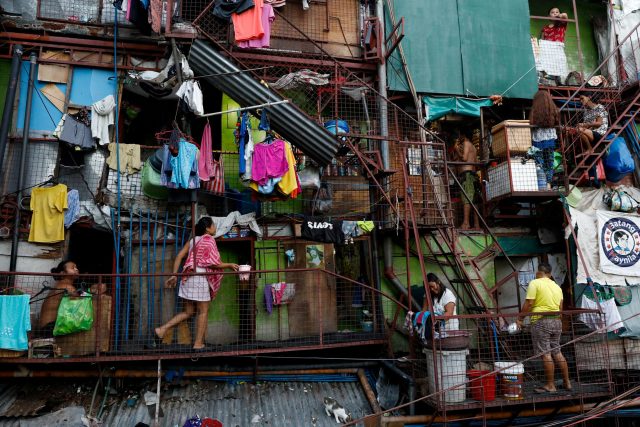
MANILA — Close to four million people in the Philippines became poor in the first half of the year due to pandemic-induced lockdown measures that dried up jobs and reduced domestic demand, government officials said on Friday.
Poverty incidence in the Philippines rose to 23.7% in the first half of the year from 21.1% in the same period in 2018, economic officials said, which translated to 3.9 million more Filipinos living in poverty. The statistics agency releases poverty statistics every three years.
“The COVID-19 pandemic temporarily halted our progress. In 2020, people’s income and jobs were significantly affected by stringent quarantines,” Economic Planning Secretary Karl Kendrick Chua told a media briefing, referring to lockdown measures.
The Philippines poverty threshold for a family of five per month in the first six months of 2021 was estimated at 12,082 pesos ($240).
The Philippine economy, one of the fastest-growing in Asia before the coronavirus hit, contracted by a record 9.6% last year, as pandemic-induced lockdowns shuttered businesses and crimped household consumption, a key driver of growth.
With 2.84 million COVID-19 cases and over 50,000 deaths, the Philippines has been among the worst hit countries in Asia. But new cases have come off a peak and vaccination rates have risen, allowing for restrictions to be eased.
More businesses have reopened and more people are back at work, with unemployment dipping to 7.4% in October from 8.9% in September, and growth expanding by a faster-than-expected 7.1% in the third quarter.
“With stronger growth in the second half of 2021 as we further relax restrictions and increase the vaccination rate, we can expect poverty incidence to decrease,” Chua said. —Reporting by Karen Lema; Editing by Martin Petty









